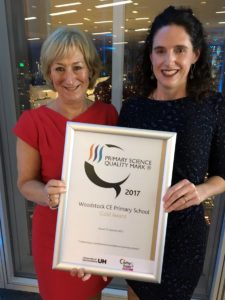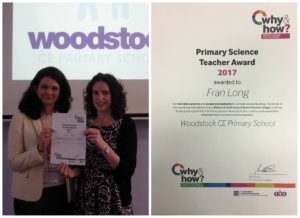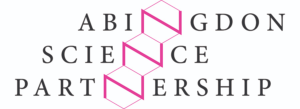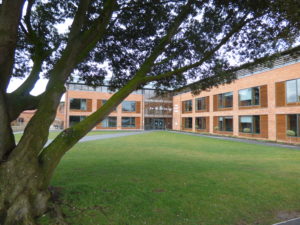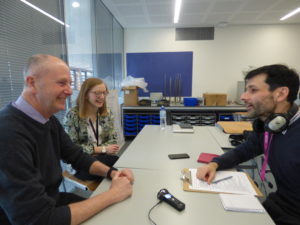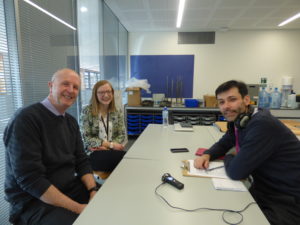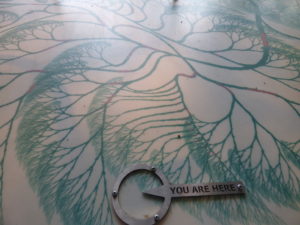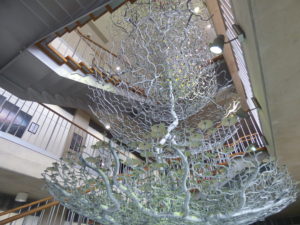“I think, at a child’s birth, if a mother could ask a fairy godmother to endow it with the most useful gift, that gift should be curiosity.” – Eleanor Roosevelt
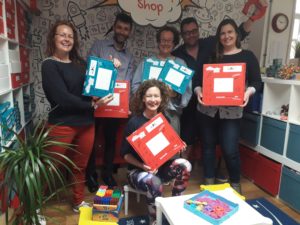 There are many people in life who are passionate about STEM, education and science, and who work hard to connect with children, to unlock a lifelong love of science. But outside mainstream education, it would be difficult to find anyone who has so consistently and brilliantly applied herself in the service of science and education as Renee Watson.
There are many people in life who are passionate about STEM, education and science, and who work hard to connect with children, to unlock a lifelong love of science. But outside mainstream education, it would be difficult to find anyone who has so consistently and brilliantly applied herself in the service of science and education as Renee Watson.
We have been excited to talk with Renee and share her story for a while. Partly this is because you cannot help but swept up in her revolutionary fervour – Renee and her team at The Curiosity Box are leading a bona fide Curiosity Revolution after all. But her own story is so utterly compelling and, well, unlikely.
(Listen now on SoundCloud – iTunes – Stitcher – for a comprehensive set of show notes, including links, analysis and organisation contact, consider becoming a supporter through Patreon – or email us for more details)
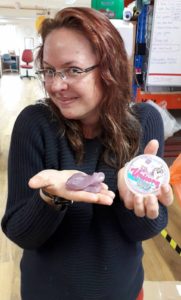 Growing up in rural Australia, with no obvious mentors or scientists to ignite her own spark (save one, which we learn about in this episode of Stories from Science) she is almost uniquely qualified to identify and connect to her diamonds in the rough. These are the smart, motivated, curious children who fall through the cracks of mainstream education and yet are exactly the kinds of young people who will see things differently, and provide the new ideas and creativity in science that will solve problems and move society forward.
Growing up in rural Australia, with no obvious mentors or scientists to ignite her own spark (save one, which we learn about in this episode of Stories from Science) she is almost uniquely qualified to identify and connect to her diamonds in the rough. These are the smart, motivated, curious children who fall through the cracks of mainstream education and yet are exactly the kinds of young people who will see things differently, and provide the new ideas and creativity in science that will solve problems and move society forward.
After tremendous success in science – academically and commercially through her WATS.ON consultancy, Renee set up The Curiosity Box two years ago. She has built a team – and created an ethos – that has led to awards, recognition, and earlier this year she was called out by philanthropist Melinda Gates as one of eight women in STEM to watch worldwide.
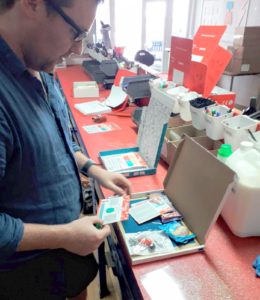 The Curiosity Box allows children and their families to do science and experiment in their own homes through a subscription service which sees a regular box crammed full of science fizz through the letterbox (metaphorically), with the aim to make science as common a topic to discuss around the kitchen table as politics and TV shows.
The Curiosity Box allows children and their families to do science and experiment in their own homes through a subscription service which sees a regular box crammed full of science fizz through the letterbox (metaphorically), with the aim to make science as common a topic to discuss around the kitchen table as politics and TV shows.
She is ‘Head of Explosions’ at The Curiosity Box – but she is also motivated by social justice, untapped potential, entrepreneurship and a lot of love: for science, and for the families that share back what they do with the science they get sent.
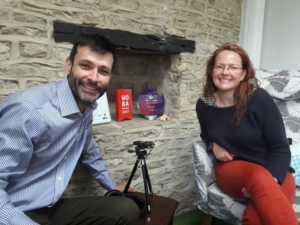 It’s difficult not to get swept up in this enthusiasm for revolution. In this inspiring hour-long interview, we discover why science capital is like carrying a suitcase, we learn the constituent parts of Unicorn Poo, and go toe-to-toe with STEM Barbie.
It’s difficult not to get swept up in this enthusiasm for revolution. In this inspiring hour-long interview, we discover why science capital is like carrying a suitcase, we learn the constituent parts of Unicorn Poo, and go toe-to-toe with STEM Barbie.
(Listen now on SoundCloud – iTunes – Stitcher – for a comprehensive set of show notes, including links, analysis and organisation contact, consider becoming a supporter through Patreon – or email us for more details)
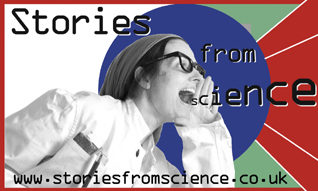
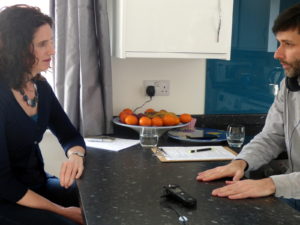 The teaching of Science, Technology, Engineering and Maths – STEM – is possibly *the* hot topic in education at the moment. It’s no exaggeration to say that we need hundreds of thousands of new scientists and engineers in the coming years, but in a time of huge educational challenges, how exactly do you inspire and ‘hook’ young children on science, and give them the hunger and resilience to succeed in STEM subjects for the long term?
The teaching of Science, Technology, Engineering and Maths – STEM – is possibly *the* hot topic in education at the moment. It’s no exaggeration to say that we need hundreds of thousands of new scientists and engineers in the coming years, but in a time of huge educational challenges, how exactly do you inspire and ‘hook’ young children on science, and give them the hunger and resilience to succeed in STEM subjects for the long term?